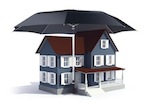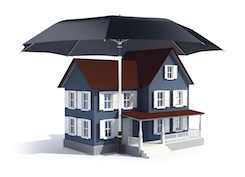Your HOA Board Needs D&O Insurance!

If you serve on a homeowners association (HOA) board—or are considering it—then you need to know about Directors and Officers (D&O) Liability insurance. While your HOA has general liability insurance, this does not mean that you are personally covered from claims made against you while serving on your association’s board.
But D&O insurance does. This type of liability insurance covers directors and officers in their individual or group capacity as acting board members against third-party financial damages...
Read More About: Your HOA Board Needs Directors and Officers Insurance!
How To Deal With Noise Complaints In Your HOA...

Noise complaints can be a headache for everyone involved. For you and the board of your HOA, it’s important to understand your responsibilities and how you can help avoid noise issues in the future.
Know your responsibilities as an HOA when it comes to noise complaints between neighbors.
Read More About: How to deal with noise complaints in your HOA...
Should Your HOA Allow Rentals?

A homeowners association (HOA) has the right to institute rules allowing or restricting the ability of its owners to rent or lease their units. Language regarding such a policy can be found in your HOA’s bylaws.
Although it can be difficult to change your HOA’s rules, whether or not you should will likely cause a hot debate—with valid points made for both cases. This article discusses the pros and cons of allowing rentals in your HOA or Association.
Read More About: Should Your HOA or Association Allow Rentals?
How To Run A Background Check...

Whether you’re hiring an accountant for your business or a nanny for your child, you may at some point want to run a background check.
The good news is that you can find a great deal of information online—much of it for free. Here’s how...
Read More About: How to run a background check
Debt Collection: Know Your Rights!

If you’re on the receiving end of debt collection calls and letters, you may feel alone and unprotected. But the Fair Debt Collection Practices Act (FDCPA), enforced by the Federal Trade Commission (FTC), provides you with certain rights from debt collectors, including lawyers and in-house and third-party collection agencies.
Here’s a brief look at what is, and isn’t, allowed under the FDCPA...
Read More About: Debt Collection: Understand Your Rights!
Why Have A Professional Reserve Study?

As a business, the Board needs a business plan for the maintenance of the assets of the association. Which assets or parts thereof (i.e. partial pavement replacements, phasing roofing replacements) will require repair or replacement, when will they need replacement, and at what cost are the most important questions one must ask in determining a forecast of future capital projects.
When managing the contributions (assessments) of hundreds of homeowners, it is essential to provide as accurate a forecast as possible. Professional Reserve Study providers have the extra expertise from conducting hundreds of assignments each year to apply engineering success stories from other associations and determine the most reasonable reserve budget that is consistent with Board objectives.
Read More About: Why Have A Professional Reserve Study?
How To Raise Your HOA Dues...

It is the responsibility of your homeowners association’s board to set a budget each year, which includes the monthly income from homeowners, or association dues. While raising dues is never popular, it is a necessary step to properly maintain your community—and maintain the property values of those who are part of it.
Proper planning and open communication can help ease the pain of increasing monthly homeowners association dues. So how do you raise your HOA’s dues without receiving backlash from homeowners? Follow these five steps...
Read More About: How To Increase Your HOA Dues...
What Happens If You Don't Pay Your HOA Dues?

Your homeowners association has bills to pay: heat, electricity, landscaping, maintenance, repairs, employees and possibly more depending on your community’s unique features. As a homeowner, you pay a portion of those fees—your HOA dues—each month.
When you fall behind on your payments, it becomes harder for the HOA to maintain the community, and other homeowners usually end up paying more to cover your missed payments. To help recover these funds, HOAs can take a number of different avenues, depending on the association’s governing documents and state and federal laws.
Read More About: What Happens If You Don't Pay Your HOA Dues...
Fire Safety In Your Community

Fires can start anywhere at any time. Help keep your homeowners and community safe with regular fire education and preventive actions.
Whether you live in a neighborhood, gated community or a condo building, there are important things you can do to help keep your community—and those who live in it—safe from fire.
Read More About: Fire Safety In Your Community
Get Rid of Old Debt: Know Your Rights!

By law, debt collectors cannot sue you to repay what is called "a time-barred debt". If you have old debt, there’s good news and there’s bad news. Bad news first: you still owe the money.
Now for the good news: you may be safe from a lawsuit to repay the debt. After a period of time, called the statute of limitations, your debt is considered time-barred, and under the Fair Debt Collection Practices Act (FDCPA), you cannot be subjected to any legal action to repay that debt.
Know your rights under the FDCPA by following these guidelines:
Read More About: Get Rid Of Old Debt: Know Your Rights!
Homeowners Insurance: What Not To Do!

Before you make that next purchase or home upgrade, be sure to check how much extra you’ll need to pay for your homeowners insurance rates.
The cost of your homeowners insurance rate varies on a number of factors—from the size of your home to its location to what you put in and outside of it. That trampoline that provides your kids with hours or entertainment? It could also be costing you extra on your home insurance premium.
Read More About: Homeowners Insurance: What Not To Do!
Qualify Your HOA For FHA Loans...

Ensuring that your condo or townhome association is on the FHA approved list is important to everyone.
It’s important to potential buyers who may not otherwise qualify to purchase a home in your association. It’s important to current owners who may want to sell one day and want a larger pool of buyers for their unit. And it’s important to the association itself, as that larger pool of buyers helps create more competition, which raises unit prices.
In the past, whether or not an association qualified for FHA loans wasn’t so important, as lenders could do “spot loans” for specific units. New laws changed that, however. So that FHA-approved pool of buyers can now only purchase in FHA-approved associations.
Read More About: How To Qualify Your HOA For FHA Loans...
Investing Your HOA's Reserves??

Your homeowners association has diligently been adding to its reserves account and now would like to invest that money to possibly grow it even more.
As a nonprofit, your HOA has the ability to generate income on your reserves. But should you? The answer depends on several factors...
Read More About: Should Your HOA Invest Its Reserves?
Tip: Promote Your Superbowl Party...

With the power to share comes the ability to spread the word, increase awareness, and accomplish your goals.
Use your website to promote any noncommercial event:
- Meetings
- Parties
- Rallies
- PTA fundraisers
- Reunions
- School Events
Many of the Neighborhood Link features can be used to promote your events. Try:
- Posting the event in the online calendar
- Using the announcement box on the homepage
- Uploading a PDF Flyer
- Creating a professional webpage with our simple editor
- Starting a new interactive website with its own discussions, calendar, etc.
- Use Email Blast to notify everyone (Premium Feature-Learn More...)
Examples of real promotional efforts:
Broadway Station
Ballard Football Boosters
NAP-Neighborhood Alliance Pawtucket
San Gabriel Valley Football Officials Association
Keeping Your Community Safe

You know the saying: the best defense is a good offense. The same applies to the safety and security of your community. Gates, alarms, guards—these are all great measures for deterring would-be thieves.
But there are other ways to keep such unwanted individuals from even making that first attempt.
Take these simple steps to help keep your community safe and secure...
Read More About: Keeping Your Community Safe
Tip: Celebrate The Season!

The holiday season is an especially good time to bring a community together. Your community website can help your neighbors enjoy an extra special winter holiday season.
Try some of these things:
- Update your website to celebrate the holiday season.
- Have residents bring ornaments and decorate a community Christmas tree.
- Recognize residents and business owners who go out of their way this season.
- Have a holiday house-decorating contest.
- Post decorating and safety tips on your website.
- Hold a pancake breakfast, and ask a neighbor to dress as Santa.
- Show a classic holiday movie in your home and invite neighbors.
- Be of good cheer!
Examples of community websites promoting holiday spirit:
River Glen Homeowners Association
Kolin-Ruby Community Watch
Westmoor Sandpiper
Highland Park Neighborhood Association
Holiday Decorations And HOAs...

Americans love to show their holiday spirit. From flying flags on Independence Day to spooky set-ups for Halloween to twinkling trees for the winter holidays, we put a great deal of time, effort and love into our displays. But when you live in a homeowners association community, your delightful decorations may be a nuisance to your neighbor.
Bright and noisy displays can quickly wear out their welcome and religious decorations could offend others. But you can still keep your holiday spirit while maintaining your community’s standards.
Read More About: Holiday Decorations And HOAs
Tip: Make Your Community Safer

Did you know that within your existing website, you can create an unlimited number of pages promoting safety?
What kinds of pages can I create to make my neighborhood safer? Try:
- Warning neighbors about potential door-to-door scams
- Alerting neighbors to local criminal activity
- Organizing/advertising a neighborhood cleanup (criminals are attracted to neighborhoods that appear dirty or unkempt.)
- Adding pictures/bios of the police officers who patrol your community.
- Organizing an alley numbering or curb numbering project (to help speed response from police, fire and paramedics)
- Creating a page of useful govt. and police contact information
- Sharing information about recent criminal activity
- Facilitating a neighborhood party, walk, or anything else where neighbors get to know one another.
Examples of how real organizations have made their neighborhood safer:
Madison Park
Camelot Neighborhood Association
Valley Park Civic Association
Marlborough Mesa
How To Choose The Right HOA Management Firm

Your homeowner association’s management firm acts as your community’s fiduciary, which means it must do what is in the best interest of your HOA. That could involve preparing financial statements, hiring contractors, dealing with homeowner complaints, negotiating contracts and numerous other tasks to ensure your HOA is properly maintained in all respects.
It’s a big task, so you want to be sure you’ve selected the right firm for the job. Here are four tips to help you find the right HOA management firm for your community.
Read More About: How To Select The Right HOA Management Firm...
How To Collect Delinquent HOA Dues and Fees

If you own property that is managed by a homeowners association, then you know the importance of the fees that are collected from each owner.
Those association fees cover common expenses, help maintain the property and finance any amenities your property affords.
So when some owners in your association don’t pay their fair share, it affects everyone—and could have negative financial consequences such as deferred maintenance, shuttered amenities and decreased property value.
But there are ways to collect.
Read More About: How To Collect Delinquent HOA Dues And Fees
Tip: Save Yourself Time!

A neighborhood leader spends lots of time answering the same question from different residents. If you hear the same question more than once, post the information/answer on your website. You can spend your time more wisely and provide better service to your neighbors.
"Our online handbook outlines our acceptable RV storage procedures." or "Your Realtor can print our CC&Rs directly from our website." are answers that might save you enough time to organize that block party you've been trying to plan.
Time Saving Information other Neighborhood Leaders have Posted
- Bulk Trash Collection Schedules
- Directory Updates
- After Hours Emergency and Complaint information
- By-laws
- Use Permit Provisions
- Lot Maps
- Pool Information
- Architectural Review applications
- CC&Rs
- Insurance Declarations
- Resident's Handbooks
- Rent/Dues Collection information
Steeplechase at Foxcreek
AshleyWoods / Eagles Creek HOA
Carefree Crossing Estates
Clifton Community Council
Dixon Branch Homeowners Association
When NOT To File A Homeowners Insurance Claim

You’re being tracked. Not in some creepy, stalker kind of way, but every time you file a claim against your homeowners insurance policy, you’re entered into a nationwide database called CLUE (Comprehensive Loss Underwriting Exchange).
File too many claims and your insurance company could cancel your policy—or at the very least, raise your rates. And, because CLUE is a nationwide database used by nearly all insurers, you may have trouble securing a policy with a new company.
If you need to make a claim and your policy covers the loss, then by all means make use of that policy you’ve been paying for. But there are some instances where you may be better off not filing a claim.
Read More About: When NOT To File A Homeowners Insurance Claim
Should You Pay Off Your Mortgage?

While a home loan is far and away that largest percentage of a person’s debt load, does it make sense to pay it off completely?
In hard economic times, we’re all looking for ways to reduce our debt. But should you pay off your home loan? Everyone’s situation is unique—find out if paying off your mortgage makes sense for you.
Read More About: Should You Pay Off Your Mortgage?
Reverse Mortgage Pros & Cons...

Seniors are feeling just as cash-strapped as the rest of Americans right now. Many have lost a good portion of their retirement fund, some have lost their jobs, and others are feeling the pinch of rising health-care costs. The idea of tapping into your home equity through a reverse mortgage can sound appealing, but it isn’t right for everyone.
Reverse mortgages can provide seniors with some new financial options, but there are drawbacks. Learn what you should take into consideration before taking out a reverse mortgage.
Read More About: Reverse Mortgages: Pros and Cons
How To Challenge Your Property Assessment!

If your home value is dropping but your property taxes are not, you can appeal the assessed value of your home which may help lower your taxes.
Property values are down, so why doesn’t your property tax assessment reflect that? It’s estimated that between 30 and 60 percent of all taxable property in the country is over-assessed.
If you think your property tax assessment is off by 10 percent or more, you should consider challenging it. It will take some time, but is something you can do on your own.This resource guide article will show you how to go about it.
Read More About: How To Challenge Your Property Assessment
Year End Tax Tips for 2010

There are a number of steps you can take each year to reduce your taxes. This year, several new tax breaks were introduced to help individuals, families and business owners struggling in the ailing economy. Here are a few you may be eligible to take advantage of when doing your taxes in 2011.
No limit on itemized deductions.
While this may change next year for the $100,000-and-over tax bracket, for 2010 there is no limit on any itemized deductions. Before December 31, pay any charitable contributions, local or state taxes, health-care costs, or anything else you can itemize on your taxes.
Credit those college expenses.
The American opportunity tax credit (which expanded and re-named the Hope credit) can be claimed for tuition and other fees paid by students or their parents. (The credit is phased out at higher income levels.) The maximum amount you can claim has been raised to $2,500 for 2010—a $700 increase. The number of years you can claim this credit has also increased from two years to four post-secondary education years.
Read More About: 2010 Year End Tax Tips
Also: Year End Tax Tips To Save You Money....
Protect Your Home From The Foreclosure Next Door

And having a foreclosed home or two (or more) in your neighborhood isn’t just potentially bad for curb appeal. It can also invite crime, which could cause your homeowners insurance to increase.
But there are things you and your neighbors can do to help maintain the value of your home—and your neighborhood.
Read More About: How To Protect Your Home's Value From The Foreclosure Next Door...
How To Save On Closing Costs

Closing costs seem to be a necessary evil when securing a new, or refinancing a current, mortgage. And they can be expensive—anywhere from 3 percent to 6 percent of the price of your home. But there is a silver lining: you can reduce your closing costs with a little knowledge and a few negotiating tactics.
Read More About: How To Save On Closing Costs
Staging Your Home For Sale: Room by Room

Learn how to stage each room of your home to show off its best features and create an environment where buyers can see themselves at home.
Staging your home for sale is especially important in a buyer’s market. With housing inventory high and prices falling, potential buyers have many more options available to them. And their demands are high. If you want to get your asking price (or sometimes higher), you’ll need to spend some time staging your home.
There are some basic home staging items you’ll need to do. Once those are complete, there is more you can do to help your home sell faster and for more. Here’s a room by room guide to stage your home for sale.
Read More About: Staging Your Home For Sale: Room by Room
Related Information:
FHA Loan Requirements Are Changing

FHA reform is changing the rules for securing an FHA-insured mortgage loan, but FHA loans still provide the best opportunity for those who don’t meet the requirements of a traditional home loan.
By now we're all pretty used to reform. We've seen health care reform, credit card reform, financial reform—all within the past year or so.
So it should come with little surprise that mortgage loans insured by the Federal Housing Administration (FHA) are now facing reform as well. Early this summer, the House of Representatives passed the FHA Reform Act, which is also expected to pass the Senate. The reform comes as a result of the high number of mortgage defaults seen in the past few years, which has reduced the reserves of the FHA below legal limits. To rectify this, several changes are in the works.
What is an FHA-insured mortgage loan?
The FHA does not make home loans. The administration simply insures mortgage lenders against the possibility of default on a loan. The FHA program is mainly targeted towards first-time home buyers who might not otherwise qualify for a traditional home loan because of the high down payment and credit score requirements. (Whenever a borrower has less than a 20 percent down payment, lenders require mortgage insurance.) Currently the FHA insures nearly one-third of all new mortgages—up from just four percent in 2006.
Read More About: FHA Loan Requirements Are Changing
Related Articles:
- Should You Refinance Your Mortgage?
- What are the FHA Loan Requirements?
- Do You Qualify for an FHA Loan?
- For Sale By Owner: How to Sell Your Own Home
- FHA Refinance:Loan Options and Guidelines
- Selling Your Home? Try These Creative Strategies
- What is a 203K FHA Loan?
- First Time Homebuyers Guide
- Financial Assistance for First Time Homebuyers
- Tips on Buying a Home
- How to Sell Your Home In a Down Market
Creative Strategies for Selling Your Home

Gone are the days when all it took to sell a house was a “for sale” sign in the front yard. Here are five creative strategies to help your home go from “for sale” to “sold.”
We all know the housing market is tough these days. Foreclosures are up, home values are down. So how do you make your house stand out in the crowd and sell quickly?
Whether you have a real estate broker or are selling your home on your own, these creative selling strategies could help you make that sale.
Reinvent the open house
We’re all familiar with the traditional open house and, if you’ve been to a few, they all tend to blur together. To make your open house stand out, try throwing a lively party that offers wine, catered hors d’oeuvres, live music and prizes. Use the opportunity to show your home full of life, the way it will be for those who will eventually be living in it.
Throwing an open house party also enables you to show off the best features of your home. Have a quartet playing in your living room that showcases your fabulous view. Hire a chef to prepare hors d’oeuvres in your gourmet kitchen. Throw a BBQ out on your large deck.
As with any open house, just be sure you aren’t there when it happens. And if you are doing for sale by owner, you can still throw a party. Invite everyone you know and ask them to bring a friend to spread the word. Have a trusted friend or family member serve as host to the party.
Read All the Details On: Creative Strategies for Selling Your Home
Related Articles:
- For Sale By Owner: How to Sell Your Own Home
- Should you refinance your home mortgage?
- FHA Loan Requirements Are Changing
- How to Sell Your Home In a Down Market
- Co-Signing A Loan: What You Need to Know!
- Avoid Foreclosure Rescue Scams
- Loan Modification: Is it Right for You?
- What Is Foreclosure?
- What Is A Short Sale?
- What Is A Deed-In-Lieu?
- How To Avoid Foreclosure
- Do You Qualify for an FHA Loan?
For Sale By Owner: How To Sell Your Own Home

Selling your home on your own can save you thousands of dollars in commissions, but you have to be willing to put in the extra effort. Learn how to go through the “for sale by owner” process—it’s not as hard as you may think.
You already know that skipping the real estate agent and selling your home yourself can potentially save you thousands of dollars in commissions. But you may be wondering if this option is right for you, or where to begin.
“For sale by owner,” or “FSBO” (pronounced fizz-bo), is actually easier than most people think, as long as you’re willing to put in the extra effort and time to save some cash.
Prepare your home for sale
Whether you’re selling your home on your own or listing it with a realtor, this is one step you can’t avoid. Take a look around your home for repairs that you’ve long since stopped noticing. Finish any unfinished projects. Banish all odors from your home, clean it from top to bottom, and declutter and streamline your belongings.
Read More and Learn All Steps in: How to Sell Your Own Home
Related Articles:
- FHA Loan Requirements Are Changing
- Selling Your Home? Try These Creative Strategies
- How to Sell Your Home In a Down Market
- Should you refinance your home mortgage?
- Co-Signing A Loan: What You Need to Know!
- Avoid Foreclosure Rescue Scams
- Loan Modification: Is it Right for You?
- What Is Foreclosure?
- What Is A Short Sale?
- What Is A Deed-In-Lieu?
- How To Avoid Foreclosure
- Do You Qualify for an FHA Loan?
Home Maintenance Checklist

Keep this home maintenance checklist handy to maintain your home’s value and to provide a comfortable and safe living environment for yourself and your family.
Just as you need regular maintenance—in the form of healthy eating, exercise and regular check-ups—to remain in good health, so does your home.
Regular home maintenance could help prevent time-consuming and expensive projects down the road. Protect your largest financial investment by setting aside one weekend a month to check off some of these items. For an even more complete checklist of routine home maintenance, hire a professional inspector to visit your home and talk with you about areas you should regularly check.
Read More to Keep Your Home in Good Health with: The Complete Home Maintenance Checklist
Related Articles:
The Value of Home Maintenance

Regular maintenance of your home is an important part of maintaining its value. With proper maintenance your home will not only provide a pleasant and safe living environment but will also help keep small fixes from turning into expensive problems.
Your home is likely the largest financial investment you’ll ever make. Protect that investment by regularly performing routine home maintenance.
Regular maintenance helps prevent small issues from turning into major problems and helps maintain the value of your home. Don’t know where to begin? Follow these steps to realize the value of home maintenance.
Set aside a home maintenance fund
That old saying “it takes money to make money” holds true with your home’s value as well. According to the U.S. Census, annual home maintenance costs average more than $3,000 over time.
To be prepared for larger expenses down the road, or even for those weekend to-do list projects, plan to set aside 1 percent to 3 percent of your home’s initial purchase price for ongoing upkeep and repairs.
Read More About: The Value of Home Maintenance
Related Articles:
- Home Maintenance Checklist
- How To Choose A Contractor
- Homeowners insurance: What you need to know
- Homeowners Insurance Guide
- Homeowners Insurance: 12 Ways To Save!
- How to Buy a HUD Home
- How to Sell Your Home In a Down Market
- Do You Qualify for an FHA Loan?
Homeowners Insurance: What You Need to Know

How much homeowners insurance coverage do you need? What type of policy should you consider buying? Learn more about homeowners insurance and what you need to know to best insure your home, your possessions and your finances.
If you own a home, you need to have homeowner’s insurance. But how much, what type of coverage and whether you need extra coverage depends on your home, your possessions, your assets, and your location. Here’s what you need to know about homeowners insurance before you sign on for that policy.
How much homeowners insurance coverage do you need?
You will need enough to cover the structure of your home should you need to rebuild, to replace your personal possessions, to pay for living expenses if you need to live elsewhere while your home is repaired, and to pay for any damages brought against you by someone injured on your property.
Read More About: Homeowners Insurance: What You Need to Know
Related Articles:
- Homeowners Insurance Guide
- The value of home maintenance
- Home Maintenance Checklist
- Homeowners Insurance: 12 Ways To Save!
- How to Buy a HUD Home
- How to Sell Your Home In a Down Market
- Do You Qualify for an FHA Loan?
Reverse Mortgage: The Pros and Cons

Reverse mortgages can offer extra cash for seniors, but there are drawbacks. Learn what you should take into consideration before taking out a reverse mortgage.
Seniors are feeling just as cash-strapped as the rest of Americans right now. Many have lost a good portion of their retirement fund in the stock market collapse, some have lost their jobs, and others are feeling the pinch of rising health-care costs.
The idea of tapping into your home equity through a reverse mortgage can sound appealing, but it isn't right for everyone.
Read More About: The Pros and Cons of Reverse Mortgages
Related Articles:
- What Is A Reverse Mortgage?
- Features of a Reverse Mortgage
- Should you refinance your home mortgage?
- Loan Modification: Is it Right for You?
- Avoiding Foreclosure Rescue Scams
- What Is A Short Sale?
- What Is A Deed-In-Lieu?
- How To Avoid Foreclosure
- $8,000 Tax Credit for First Time Homebuyers
- First Time Homebuyers Guide
- Financial Assistance for First Time Homebuyers
Should you refinance your home mortgage?

Learn about the mortgage refinance process, if you qualify to refinance your home loan, and whether or not refinancing might benefit you.
The recession may be over, but most Americans wouldn’t know it. Unemployment and foreclosures remain high while the general outlook on the economy is low. Many are looking to refinance their home loan as a way to free up some dollars and possibly stay in their homes. While refinancing your home mortgage is always better than foreclosure, you should take the time to determine if refinancing is right for you.
The mortgage refinance process
When you refinance your home mortgage, you are simply restructuring your debt—not eliminating it. Your new refinanced loan pays off your original home loan. You now begin to make payments towards your refinanced mortgage, which typically has some type of advantage over your previous loan—whether it be a lower interest rate, longer repayment period, or a switch from an adjustable rate mortgage to a fixed rate mortgage.
While these are all great reasons to move forward with a mortgage refinance, there are costs to consider. Expect to pay around 2 percent to 3 percent of the total loan amount in refinance-related costs, including appraisal and closing costs. You may be able to negotiate away some of these costs if you stick with your current lender, but it’s worth shopping around to determine where you can get the best deal. (If you do fill out multiple applications for refinancing, be sure to do so within a 30-day period; your credit score won’t be dinged if you submit your applications during this time period.) Costs can be paid upfront if you have the cash, through a higher interest rate on your loan, or by rolling the fees into the principal of your mortgage.
Find Out Who Qualifies and If: You Should Refinance Your Mortgage?
Related Articles:
- FHA Loan Requirements Are Changing
- FHA Refinance:Loan Options and Guidelines
- What are the FHA Loan Requirements?
- For Sale By Owner: How to Sell Your Own Home
- Selling Your Home? Try These Creative Strategies
- What is a 203K FHA Loan?
- Funds for Handyman-Specials and Fixer-Uppers
- Do You Qualify for an FHA Loan?
- $8,000 Tax Credit for First Time Homebuyers
- First Time Homebuyers Guide
- Financial Assistance for First Time Homebuyers
- How to Improve Your Credit Score
- 5 Tips For Improving Your Credit Score
- How to Avoid Foreclosure
- What Is Foreclosure?
- What Is A Short Sale?
- What Is A Deed-In-Lieu?
- How to Buy a HUD Home
- Tips on Buying a Home
- How to Sell Your Home In a Down Market
How to save on your health-care costs

Health-care costs continue to rise, but there are things you can do to help make your health insurance more affordable.
With unemployment high and overall wealth down, it can be tempting to cut your health insurance in an effort to save money. Don’t. According to a recent study from Harvard University, 62 percent of all personal bankruptcies are due to medical expenses.
The good news is that there are a number of steps you can take to make your health insurance more affordable.
Shop around
Even if you have group health insurance through your employer, you may find an individual health insurance plan to be less expensive. Group plans provide a broad range of coverage because they are covering a diverse set of consumers. With an individual health insurance plan, you have more flexibility in selecting a plan that best fits your health-care needs.
Read More About: How to Save on Your Health-Care Costs
Related Articles:
- Purchasing Individual Health Insurance: What you need to know
- Prescription Insurance
- HMO Insurance
- Why You Need Long Term Disability Insurance
- Medicare Prescription Drug Coverage
- Medigap Supplemental Insurance Explained
- Supplemental Insurance - What Is It?
- Medical Marijuana - Should Marijuana Be a Medical Option?
- Prescription Drugs - Should They Be Advertised to Consumers?
Co-Sign A Loan: What You Need to Know

Co-signing a loan can be a great gift for a friend or relative who would not otherwise be able to secure a loan. But, it comes with very serious risks as well. Here’s what you need to know before you co-sign a loan.
Banks and other lenders consider those with bad or no credit history to be a risk and may not approve loans for cars, homes or other items unless someone with good credit history cosigns the loan.
If you’ve been asked to co-sign a loan for a friend or family member, you need to weigh the risk you are putting on yourself with the reward you are providing for those you care about. Before you sign that dotted line, be prepared for all “what if” scenarios that could occur.
Read More About: What You Need to Know About Co-Signing A Loan
Related Articles:
- Debt Relief: How to guide to get help
- What is a Credit Score?
- How to Improve Your Credit Score
- Does Mortgage Aid Hurt Your Credit?
- Mortgage Fraud: How to Protect Yourself!
- Avoid Foreclosure Rescue Scams
- Loan Modification: Is it Right for You?
- What Is A Short Sale?
- What Is A Deed-In-Lieu?
- Do You Qualify for an FHA Loan?
Mortgage Fraud: How to Protect Yourself!

Don’t become the victim of mortgage fraud. Learn about common mortgage scams and steps you can take to protect yourself.
Mortgage fraud is on the rise. In 2009, the FBI investigated 67,190 mortgage fraud cases, and in just the first two months of 2010 had 29,780 cases on the books. Estimated annual losses attributed to mortgage fraud range from $4 to $6 billion. Mortgage fraud not only affects financial institutions—it can affect home owners, buyers, and sellers as well as entire neighborhoods. But there are ways to protect yourself.
Common mortgage scams
First, you need to know what to watch for. Here are some of the more common mortgage scams, as well as a few that are on the rise:
- Equity skimming: An investor obtains a mortgage by falsifying income documents and credit reports of a straw buyer (someone who falsely represents themselves). After closing, the straw buyer signs the property over to the investor in a quit claim deed. The investor does not make any mortgage payments and rents the property until foreclosure takes place.
- Property flipping: Property flipping in itself is legal. Where the mortgage fraud comes into play is through falsely appraising the property for a high value and then quickly selling it, often multiple times. This scheme usually involves fraudulent appraisals, doctored loan documentation, and kickbacks to buyers or others involved.
- Predatory lending: This typically affects senior citizens, lower-income individuals, and credit-challenged borrowers. Predatory lenders charge borrowers exorbitant fees or higher interest rates, which often result in the borrower defaulting on the mortgage payment and ending up in foreclosure.
- Foreclosure rescue: Criminals target homeowners who are facing or are already in foreclosure and then offer “foreclosure prevention services.” In these mortgage scams, perpetrators promise to prevent foreclosure in exchange for up-front fees or a transfer of the property’s deed, usually in the form of a quit-claim deed. Then, they either take no action at all or use manipulated or forged deeds to either sell the home or secure a second loan on the home without the homeowner’s knowledge.
- House stealing: A criminal assumes your identity through fake identification, purchases forms from an office supply store that transfer property, forge your signature to these forms and then files them with the proper authorities. They then sell your house without your knowledge.
Now Learn How to: Protect Yourself From Mortgage Fraud
Related Articles:
- Avoid Foreclosure Rescue Scams
- Loan Modification: Is it Right for You?
- Co-Signing A Loan: What You Need to Know!
- What Is Foreclosure?
- What Is A Short Sale?
- What Is A Deed-In-Lieu?
- How To Avoid Foreclosure
- Do You Qualify for an FHA Loan?
Does Mortgage Aid Hurt Your Credit Score?

Homeowners seeking mortgage help through loan modification programs such as HAMP and HAFA, may face another issue—lower credit scores.
Loan Modification and Credit Scores
Homeowners on the verge of default have several loan modification programs now available to them, thanks to the federal government’s mortgage bailout plan. These programs are designed to help homeowners in distress stay in their homes by restructuring or refinancing their mortgages. As of February 2010, there were over one million homeowners in the U.S. seeking assistance through a loan modification program. But many are finding this silver lining has a dark side as well: lower credit scores.
Homeowners who are still making their payments on time but are on the brink of default and possibly foreclosure can take advantage of the Making Home Affordable program. The program offers several options to distressed homeowners, including refinancing and modifying mortgage loans. Qualified homeowners enter these programs on a trial basis, with the requirement to make at least three payments.
Read More About: Does Mortgage Aid Hurt Your Credit?
Related Articles:
- Credit Card Collections Can Garnish Your Wages
- Co-Signing A Loan: What You Need to Know!
- Correcting Fraudulent Information in Credit Reports
- How to Improve Your Credit Score
- What is a Credit Score?
- Credit Score Numbers
- Keeping a Good Credit Score
- Negative Information on Your Credit Report
- How Your Credit Score Affects Your Life
- Your Credit Score Affects Your Auto Insurance Rates
- How to Lower Your Credit Card Interest Rate
- HAFA Provides Short Sale and Deed-In-Lieu Options Instead of Foreclosure
- 5 Tips For Improving Your Credit Score
HAFA: New Short Sale Options

A new federal government program, called Home Affordable Foreclosure Alternatives, encourages lenders to pursue alternatives to foreclosure.
No homeowner wants to face foreclosure. It can be devastating both personally and financially. If you are faced with foreclosure now, or worried about it for the future, you’re not alone—15 percent of homeowners were either in foreclosure or delinquency during the last three months of 2009. Many homeowners are choosing to simply walk away from their homes and mortgages, but this can damage your credit score for years, making it difficult to get a loan in the future or even secure a job. A new federal government program can help, however. It won’t save your home, but will help you avoid some of the traumas of foreclosure.
Home Affordable Foreclosure Alternatives Program (HAFA)
Part of the Homeowner Affordability and Stability Plan (HASP), the Home Affordable Foreclosure Alternatives (HAFA) program will launch April 5, 2010. The program provides financial incentives to mortgage lenders to pursue other alternatives to foreclosure, such as a short sale or deed-in-lieu, allowing the homeowner to avoid the substantial costs of foreclosure. There is also a provision for the homeowner to receive up to $1,500 for relocation expenses.
These alternatives reduce the need for potentially lengthy and expensive foreclosure proceedings and generally provide a substantially better outcome than a foreclosure sale for borrowers, lenders and the neighborhood alike.
Read More About: The New Short Sale and Deed-in-Lieu Options provided by HAFA
Related Articles:
- Should you refinance your home mortgage?
- Loan Modification: Is it Right for You?
- Avoiding Foreclosure Rescue Scams
- How to Improve Your Credit Score
- Does Mortgage Aid Hurt Your Credit?
- How to Improve Your Credit Score
- Does Mortgage Aid Hurt Your Credit?
- What Is A Short Sale?
- What Is A Deed-In-Lieu?
- What Is Foreclosure?
- Do You Qualify for an FHA Loan?
Two Tax Breaks for Homeowners
Tax Day (April 15) is just around the corner and we wanted to remind you that recently enacted legislation has introduced two new great opportunities for tax savings. The first one is an $8,000 tax credit for first-time homebuyers and the second one is related to energy efficient home improvements. Below we have outlined the details.
First-Time Home Buyer Tax Credit
In 2008, the Federal Government through the Housing and Economic Recovery Act of 2008 authorized a first-time homebuyer tax credit of $7,500. The stimulus package of 2009 made some significant changes:
- Increased the tax credit to $8,000.
- No longer required to pay back the tax credit as long as you stay in your home for 3 years.
- Tax credit phases out for individuals making more than $75,000 or couple earning more than $150,000.
- Most types of primary residences qualify including mobile homes and house boats.
- Tax credit will reduce your tax liability and/or refund you money if you don't owe any taxes.
Although the tax credit did not turn out to be as much as had been hoped for, it is still a great opportunity for first-time homebuyers. For the complete details see this article-$8,000 Tax Credit for First Time Homebuyers
Tax Credits for Energy Efficient Home Improvements
Home improvement tax credits are now available for home improvements “placed in service” from January 1, 2009 through December 31, 2009. Home improvement tax credits up to $1,500 (raised from $500) are available for insulation, replacement windows, water heaters, certain high efficiency heating and cooling equipment, and biomass stoves. Also, the percent of the cost versus the project has been raised from 10% to 30%. For more information, see the Dept of Energy's Energy Star program http://www.energystar.gov/index.cfm?c=products.pr_tax_credits
This article contains general information. Individual financial situations are unique; please, consult your financial advisor or tax attorney before utilizing any of the information contained in this article.
Related Articles
Loan Modification Guide for Homeowners
Loan modification is a hot topic and getting a lot of "hype" in the news. Below we have detailed what a loan modification means and who qualifies for the Home Affordable Modification Program which was recently launched by the Obama administration.
What is Loan Modification?
Loan modification programs are typically designed for homeowners who are having difficulty making their mortgage payment, but who can't qualify to refinance their mortgage. A loan modification is different than a refinanced mortgage which trades in one mortgage for another one. It also differs dramatically from foreclosure, a short sale, or a deed in lieu.
A loan modification usually involves reducing the underlying interest rate and in many cases it means converting the mortgage from from an adjustable rate mortgage (ARM) to a fixed rate mortgage. Other modifications can also include extending the term of the loan (for example from 30 to 40 years) and/or adding missed payments to the loan balance. The bottom line is that a loan modification is intended to reduce the payments for the borrower, make it more affordable, and reduce the risk that the homeowner will default on the loan.
Obama Loan Modification Plan
President Obama recently announced a $75 billion initiative called the Homeowner Affordability and Stability Plan (HASP). One of the principal tenants of the plan is called the Making Home Affordable initiative and it is comprised of two parts.
The part of the plan that is focused on loan modification is called The Home Affordable Modification program and is designed to reduce monthly mortgage payments for people who are close to foreclosure by modifying their mortgages and lowering their monthly payments on their loans.
Requirements for The Home Affordable Modification Program
- Mortgage balance must be no greater than $729,750.
- Home cannot be vacant or condemned and must be a primary residence—not investor owned.
- Have a loan that was originated on or before January 1, 2009
- Have a mortgage payment (including taxes, insurance, and home owners association dues) that is more than 31% of your gross (pre-tax) monthly income
- Have a mortgage payment that is not affordable, perhaps because of a significant change in income or expenses.
To find out if you are eligible, there is a simple online form at the makinghomeaffordable.gov website. Check it out here: http://www.makinghomeaffordable.gov/modification_eligibility.html.
How does it all work?
Once it is determined that you qualify, service providers will be required to follow a sequence of steps that modify the loan in order to reduce the monthly loan payment to no more than 31% of gross monthly income. For example, the interest rate can be lowered to as low as 2 per cent and the term of the mortgage can be extended to a maximum of 40 years in order to maximize the reduction in loan payment.
Starting the process and required documentation
After you have determined that you are eligible, all you need to do to get the process going is call your loan servicer (the company you pay your mortgage to) and ask to be considered for a Home Affordable Modification. You should be able to find their phone number on your latest bill.
Below is a list of the documentation you will probably be required to provide to your loan servicer. To speed the processing of your application, you should probably get this together before calling them.
- Most recent income tax return.
- Information about assets.
- Information about any second mortgage on the house.
- Account balances and minimum monthly payments due on all credit cards.
- Account balances and monthly payments on all other debts such as student loans and car loans.
- A letter describing why your mortgage is unaffordable (i.e. what caused your income(s) to be reduced or expenses to be increased).
Beware of Loan Modification Scams
There should never be a fee for assistance with or information about the Making Home Affordable Program. If you would like credit counseling before applying for the loan modification program, HUD-approved housing counselors can help you evaluate your income and expenses and understand your options. This service is Free as well! You can find them here: http://www.hud.gov/offices/hsg/sfh/hcc/fc/ or you can call them at 1-888-995-HOPE (4673).
- Beware of any person or organization that asks you to pay an upfront fee in exchange for a counseling service or modification of a delinquent loan. Do not pay – walk away!
- Beware of anyone who says they can “save” your home if you sign or transfer over the deed to your house. Do not sign over the deed to your property to any organization or individual unless you are working directly with your mortgage company to forgive your debt.
- Never make your mortgage payments to anyone other than your mortgage company without their approval.
Related Articles
- Obama's Loan Modification Plan Explained
- HASP Explained
- Loan Modification: Is it Right for You?
- Stimulus Plan 2009-What's In it For You
- 2009 Economic Stimulus Package Explained
- $8,000 Tax Credit for First Time Homebuyers
- Saving and Managing Your Money During a Recession
- First Time Homebuyers Guide
- Financial Assistance for First Time Homebuyers
- How to Avoid Foreclosure
- What Is Foreclosure?
- What Is A Short Sale?
- What Is A Deed-In-Lieu?
- Avoiding Foreclosure Rescue Scams
- How to Buy a HUD Home
What's In the Stimulus Package For You?
President Barack Obama has signed into law the $787 billion stimulus package. The plan, is aimed at lifting the economy out of recession and intends to create millions of jobs and boost consumer spending. Below we have summarized most of the benefits that pertain to individuals and homeowners.
First-Time Home Buyer Tax Credit
In 2008, the Federal Government through the Housing and Economic Recovery Act of 2008 authorized a first-time homebuyer tax credit of $7,500. The stimulus package of 2009 made some significant changes:
- Increased the tax credit to $8,000.
- No longer required to pay back the tax credit as long as you stay in your home for 3 years.
- Tax credit phases out for individuals making more than $75,000 or couple earning more than $150,000.
- Most types of primary residences qualify including mobile homes and house boats.
- Tax credit will reduce your tax liability and/or refund you money if you don't owe any taxes.
Although the tax credit did not turn out to be as much as had been hoped for, it is still a great opportunity for first-time homebuyers. For the complete details see this article-$8,000 Tax Credit for First Time Homebuyers
Making Work Pay Credit
The making work pay credit is essentially a $400 tax credit for individuals or an $800 tax credit for couples. It is calculated by taking 6.2% of your earned income up to the amounts cited above. Many employers will probably begin adjusting their withholding sometime this year so that it will work out on average to about $15 per pay check if you are paid twice per month. Also, self-employed individuals can adjust their quarterly tax payments to reflect the credit. The credit begins to phase out to anyone making more than $75,000 per year and couples making more than $150,000 per year. As it stands now, the credit is for the years 2009 and 2010.
Finally, for retirees not eligible for the Making Work Pay credit, Congress created a one-time payment of $250. The checks are supposed to go out no later than June 17, 2009.
Car Buyer Tax Deduction
To stimulate auto buying, you will able to deduct state and local sales tax on new vehicles purchased on the day the legislation becomes law and throughout the rest of 2009. This applies to new cars, light trucks, recreational vehicles or motorcycles. This deduction is meant for everyone, thus you can take it regardless of whether you itemize other deductions on your tax return. This tax deduction phases out for single people with adjusted gross income over $125,000 or $250,000 for married couples. Finally the deduction does not apply on vehicles that cost more than $49,500.
Unemployment Benefits
In 2009 only, the first $2,400 of unemployment benefits will not be subject to income taxes. Workers losing their jobs from Sept. 1 2008 through the end of 2009 can get help with insurance premiums under COBRA, the federal law that allows you to keep coverage under an old employer's plan. The government will subsidize 65 percent of the premium cost while you will pay the remaining 35 percent of the premium cost. Your income in the year you receive the subsidy cannot be more than $125,000 for individuals or $250,000 for married couples.
Higher Education Tax Credit for Students
This is another "refundable tax credit" which means it is designed to help people who pay little or no taxes as well. This $2,500 tax credit covers the cost of college tuition and other related expenses in 2009 and 2010. You must spend at least $4,000 in a single year to get the full credit. Also, the credit phases out for individuals earning over $80,000 or $160,000 for married couples.
Tax Credits for Energy Efficient Home Improvements
Home improvement tax credits are now available for home improvements “placed in service” from January 1, 2009 through December 31, 2009. Home improvement tax credits up to $1,500 (raised from $500) are available for insulation, replacement windows, water heaters, certain high efficiency heating and cooling equipment, and biomass stoves. Also, the percent of the cost versus the project has been raised from 10% to 30%. For more information, see the Dept of Energy's Energy Star program http://www.energystar.gov/index.cfm?c=products.pr_tax_credits
This article contains general information. Individual financial situations are unique; please, consult your financial advisor or tax attorney before utilizing any of the information contained in this article.
Related Articles
- 2009 Economic Stimulus Package Explained
- Obama Mortgage Rescue Plan FAQ
- Obama's Loan Modification Plan Explained
- Obama Stimulus Plan FAQ
- 2009 Economic Stimulus Plans-A Glossary of Terms
- Executive Summary of the 2009 Economic Stimulus Plan
Neighborood Watch Websites and Neighborhood Link
What is Neighborhood Watch
Launched in 1972, and sponsored by the National Sheriffs’ Association, Neighborhood Watch counts on citizens to organize themselves and work with law enforcement to keep a trained eye and ear on their communities, while demonstrating their presence at all times of day and night. The program was developed in response to requests from sheriffs and police chiefs who were looking for a crime prevention program that would involve citizens and address an increasing number of burglaries.
Neighborhood Watch is not just about crime prevention. It is about getting to know neighbors and enhancing the quality of life in the neighborhood. An important goal at neighborhood meetings is to learn more about each other so neighbors are available to help each other during difficult times. These days many Neighborhood Watch groups have begun using websites to help amplify and enhace their efforts. Neighborhood Link, which was established in 1998, hosts over 36,000 neighborhood websites across the country. Out of that 36,000, several hundred are Neighborhood Watch websites.
Below are some examples of Neighborhood Watch groups around the country using Neighborhood Link Websites:
- Germantown Oaks Neighborhood Watch- Local Neighborhood Watch group in Memphis, TN
- Windhover Condo Neighborhood Watch- Local Neighborhood Watch group in Orlando, FL
- Tampa Neighborhood Watch Association, Inc.- Umbrella group for all Neighborhood Watch Groups in the Tampa Bay area
- Westown Watch Neighborhood Association- Combination Neighborhood Watch and Neighborhood Association in Phoenix, AZ
For More Information on the Neighborhood Watch Program:
- See this article on How to Start a Neighborhood Watch Program
- Find Out How to Get A Free Neighborhood Watch Website
- See this other article for an overview on Neighborhood Watch-What is It?
- USA On Watch-The Face of the National Neighborhood Watch Program
- Tools and Resoures from the National Crime Prevention Council
Source: USAOnWatch.org and the National Crime Prevention Council
Avoid Home Improvement Troubles.......

Spring is here and many homeowners begin remodeling and home improvement projects. In fact May is known as National Home Improvement month. Unfortunately, every year we hear about homeowners getting ripped off by scam artists who are posing as remodelers or contractors.
There are a number of red flags that can tip you off to a potential home improvement or remodeling scam. Below is a list of warning signs that can alert you to the fact that you might be dealing with a potential scam artist or unscrupulous contractor:
- Solicits door-to-door
- Offers you a discount for finding other customers
- Just happens to have materials left over from a previous job
- Tells you your job will be a "demonstration" or that your home will be a "model" home
- Pressures you for an immediate decision, i.e., "this offer is only good for today"
- Asks you to pay for the entire job up-front or only accepts cash
- Suggests that he can help you finance the project and that you borrow money from a lender he knows
- Does not list a business number in the local telephone directory
- Asks you to get the required building permits
There are also a few key points and best practices to keep in mind when contemplating a home improvement or remodeling project:
- Be skeptical of any contractor or handyman who solicits door to door—most well established and reputable contractors find their work through referrals.
- Try to get a recommendation for a contractor from a friend or coworker.
- Always ask for proof that a contractor is licensed and bonded.
- As for references that include addresses and phone numbers and call or visit those references.
- Always have a contract in place before the contractor/remodeler begins work.
- The contract should include the contractor’s name, address, phone and license numbers. It should also include details about what the contractor will and will not do.
- There should always be an estimated start and completion date.
- All warranties should be listed with their details.
- Any oral promises, should also be written into the contract.
- There should be a method for dispute resolution and it should be clearly delineated as to which parties bear what cost of the process.
Keep in mind, your home might be your best financial asset and you need to not only research your project, but research the individuals who you employ to complete your home improvement or remodeling project.
For more information on home improvement and how to go about them, check out this article in our neighborhood resource guide focused on finding a contractor and home improvement projects.
Help in Avoiding Foreclosure
The brochure titled, Protecting Your Investment: Understanding Home Financing and Avoiding Foreclosure offers guidance to consumers who are considering purchasing or refinancing a home and offers tips to homebuyers who are having trouble paying their mortgage. The brochure also outlines remedies to avoid foreclosure and details the devastating impact foreclosures have on the economy.
It is an excellent short brochure that details many of the key points in avoiding foreclosure. Although it was developed by the state of Massachusetts, all of the information is relevant to anyone who is considering buying or re-financing a home or who is dealing with the possibility of foreclosure.
You can get it here or vist their general information page on Foreclosure and Mortgage Lending
